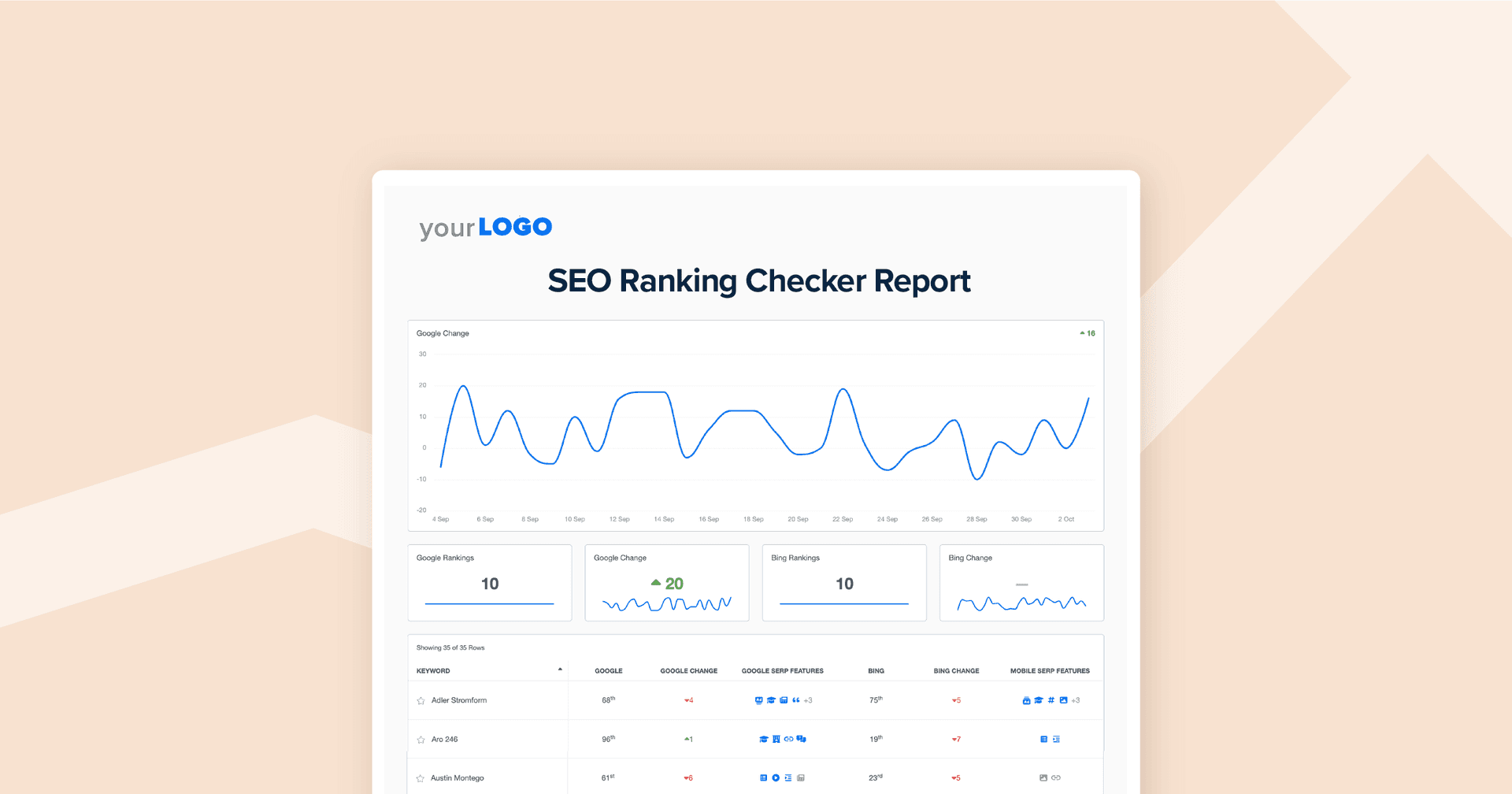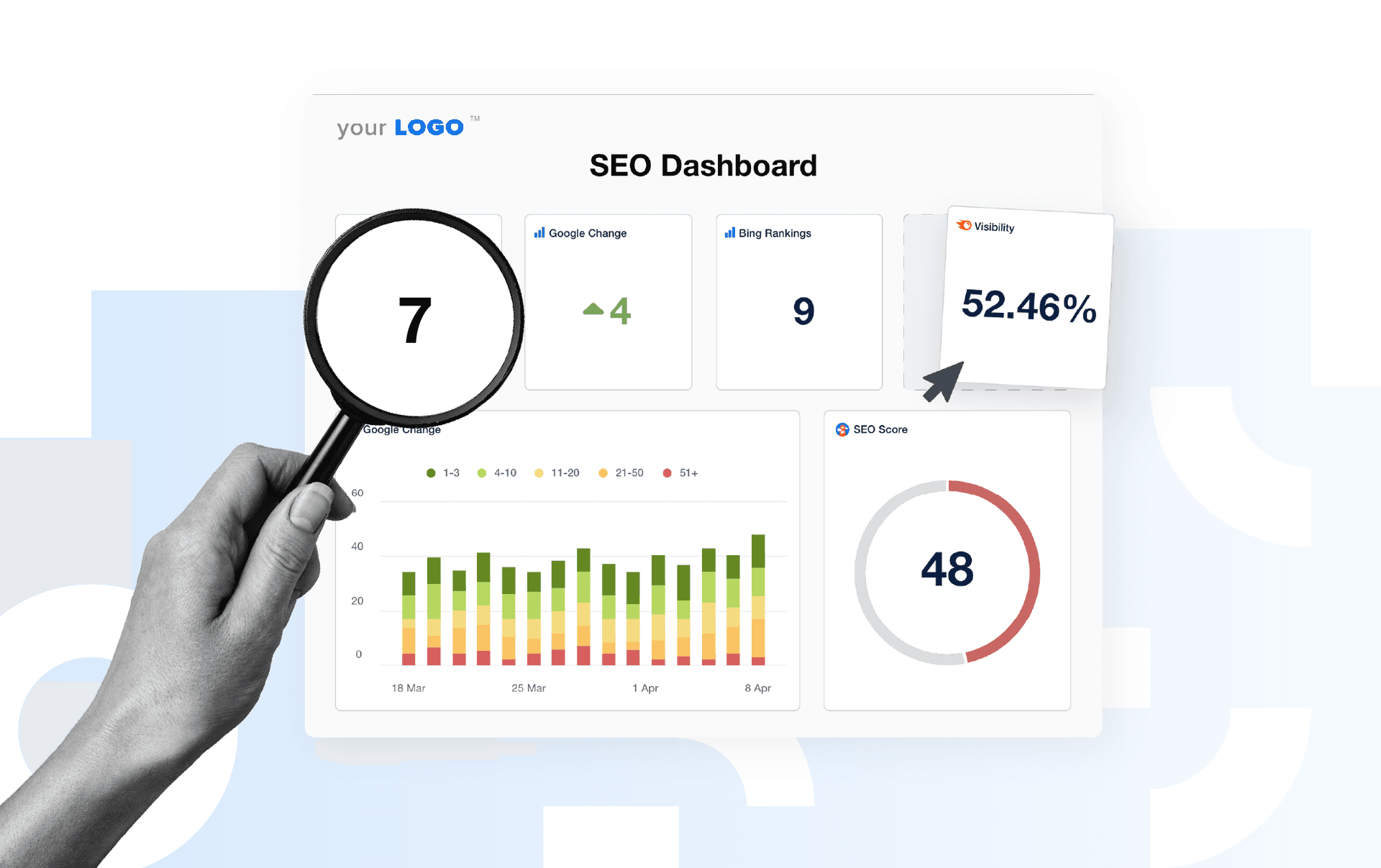Table of Contents
Table of Contents
- 1. Indexation optimization and troubleshooting
- 2. Site-wide performance optimization
- 3. Metadata and infrastructure
- 4. Page-level content
- 5. Ongoing on-site content
- 6. Off-site guest posting and link building
- 7. Periodic link cleanup
- 8. Social media syndication
- 9. Relationship building
- 10. Ongoing analytics and troubleshooting
7,000+ agencies have ditched manual reports. You can too.
Free 14-Day TrialWhen it comes to SEO, I see a lot of information from industry authorities that either over complicates or oversimplifies the process.
Some argue that to run an effective SEO campaign, you need years of technical expertise, a dedicated in-house team, and constant attention to dozens or even hundreds of different variables. Others argue that all you need is a good content strategy and some patience.
If I'm being honest, there are grains of truth to each side. Yes, a minimalistic SEO strategy can get you results, and yes, investing time, energy, money, and experience in SEO will pay off in spades. But to the average business owner or marketer, all this does is create chaotic white noise.
To try and strike a middle ground between these two opposing sides, I position that there are 10 essential SEO tactics that every website needs:
1. Indexation optimization and troubleshooting
Your first job is to make sure your site can be seen and properly indexed by Google, otherwise you have a major problem. Server errors, mistaken additions in your robots.txt file, and pages with errors that are unable to load can interfere with your optimization here. What's more, these problems can creep up on you unexpectedly, so you need to be ready to troubleshoot.
2. Site-wide performance optimization
A website's performance has a significant bearing on overall authority. You need to make sure it loads correctly on all devices (including mobile) and all browsers, and that all content (including images and video) load correctly for users. Beyond that, you need to make your site secure, fast, and easy for users to navigate; these are small changes, but they add up to a significant effect, and they'll keep your users happy too.
Agency Tip: Use an SEO audit tool to run regular SEO checkups to find and fix common errors that could be negatively impacting performance.
Impress clients and save hours with custom, automated reporting.
Join 7,000+ agencies that create reports in minutes instead of hours using AgencyAnalytics. Get started for free. No credit card required.
3. Metadata and infrastructure
Metadata isn't publicly visible to people who visit your page, but it tells search crawlers much about your website. For example, your page titles and descriptions help Google categorize each page in your site (and present that information to searchers). Your infrastructure also matters; keep your navigation and URLs organized (with descriptive text and no strange characters), and interlink your pages for easier user navigation.
4. Page-level content
The content you write for each page has a significant bearing on how relevant a search engine deems your page as well as the overall authority of your site. As a general rule, each page of your site should have several hundred words of content, all detailed, original, and relevant to your page topic. This is a good place to start injecting your target keywords, but be careful not to stuff them. Be sure to use header tags (H1, H2, H3, etc.) properly as well.
5. Ongoing on-site content
Google likes to see active sites. One of the benefits of ongoing SEO campaigns is the ability to publish new content on a regular basis in your blog or newsfeed. This gives you more high-quality pages for Google to index, lends to your authority, and serves as an opportunity for outside authorities to link to you. The user experience benefits aren't bad either - you can use your content to build brand authority and increase your conversion rate, too.
6. Off-site guest posting and link building
Links are necessary if you want to rank in organic search results. As part of an overall off-page SEO strategy, they are used to pass authority to your domain and pages, and without that authority, you'll never rank for a relevant search. Guest posting is by far the safest, most reliable way to build links - as long as your content is valuable and your partners are noteworthy. It takes time to scale a link-building strategy through guest posts from scratch to something relevant, but it can be done if you consistently produce good material. If you prefer to outsource your link-building campaign, see How Much Should You Pay For Good Link Building Services?
7. Periodic link cleanup
Not every link you build will be perfect, and you might attract some questionable links independent from your strategy. Those questionable links may actually drag your authority down, so use link removal & disavowal tactics to remove them and clean up your link profile.
8. Social media syndication
There's a misconception that social media activity or popularity directly affects your search rankings, but this isn't the case. Instead, social media indirectly supports your SEO campaign by giving your content a wider platform and potentially earning you more inbound links. It may also connect you with influencers, who you can work with in a guest posting strategy.
9. Relationship building
If you want to earn more social media followers, get more attention for your blog posts, and earn more links, you need to begin and nurture online relationships. This includes relationships with other brands, industry authorities, influencers, and publishers; the more you have on your side, the more authority you'll be able to earn.
10. Ongoing analytics and troubleshooting
SEO isn't a perfect science, and there's a lot that could potentially go wrong, even if you're following best practices from the outset. It's necessary to take regular measurements of your tactics and results, and proactively respond to any hiccups you catch along the way. It's hard to see the patterns at first, but you'll get used to it. The easiest way to stay on top of you SEO analytics is to create a dashboard focused on SEO performance, or use our SEO report template. We also have multiple SEO integrations with the best SEO agency software.
If you engage in all 10 of these tactics consistently and appropriately, you should have no trouble achieving higher rankings and organic search traffic, assuming you have a strong strategic direction to begin with. If there's one more piece of SEO advice I can give you, it's this: optimization can be as simple or as complicated as you make it. What really matters is commitment, and commitment will lead to progress.

Written by
Jayson Demers is the founder & CEO of EmailAnalytics and OutreachBloom. He helps teams boost productivity with email activity insights and drives B2B growth through done-for-you cold email outreach.
Read more posts by Jayson DemersSee how 7,000+ marketing agencies help clients win
Free 14-day trial. No credit card required.





